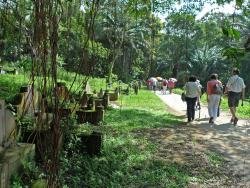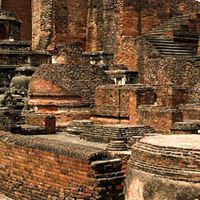Heritage as Aid and Diplomacy in Asia | call for conference papers

Submission deadline: 1 November 2015
The conference
In spite of a growing academic interest in the politics of heritage in Asia, few studies have directly questioned the role of international and transnational cooperation in the field of heritage conservation. First, even though the literature has widely addressed the role of UNESCO as a powerful disseminator of international standards of conservation (e.g. Askew 2010; Daly and Winter 2012), it has not yet tackled UNESCO’s sociological and institutional complexity, and the full history of the organisation. Secondly, the social sciences have largely neglected other international structures -- such as the World Bank, the European Union, USAid, the Asian Development Bank and many others – that have their own engagements in the conservation of heritage in Asia. These organisations often collaborate with UNESCO or participate in bilateral or multilateral initiatives. Many of these initiatives are carried out by states (or regions or cities). Cultural (heritage) diplomacy is a well thought strategy carried out by some states. Pioneer countries in cultural diplomacy include France, Italy, the Netherlands but also India and Japan.
Today, most Asian states are following on that path: in the past years, China, South Korea, Thailand, Vietnam and Indonesia have considerably strengthened their investment in regional “heritage cooperation”. Some of them, like India or Japan, have had a long history of cultural international intervention. Thirdly, private ‘philanthropic’ programs like the Agha Khan Foundation, the World Monuments Fund and the Getty Trust have long had a major impact in the management of heritage in Asia. They are now joined by newly established Asia-based foundations, such as Korea’s Samsung Foundation, to mention just one. Finally, new connections have recently been drawn between market-driven ‘development’ schemes explicitly linking ‘culture’ and ‘economic opportunities’, as part of the global capital-driven developmentalist discourse, as when World Heritage sites become objects of mass tourism and urban areas are labelled as ‘creative’. This new model of ‘culturo-capitalism’ is fast becoming prominent, as is the global campaign of systematic digitisation of library collections by the multinational Google, ‘responsible capitalism’, or micro-credit schemes. These essentially capitalist constructions now co-exist with the more traditional state-sponsored heritage practices and with elite-originated private cultural philanthropy.
The relative shortage of historical, sociological, political, and ethnographic researches on these multiple incarnations of ‘Heritage As Aid or as Diplomacy’ is all the more surprising when we consider how cultural and heritage management represents a major area of international cooperation as well as a powerful instrument of ‘soft’ influence by states, corporate forces and social elites on Asia-based heritage practices. This conference will address the relevant international and transnational actors as objects of study and will engage in a threefold exploration:
1. Knowledge production
International and transnational agents are prolific producers of knowledge on heritage. Often following the theoretical (and sometimes ideological) avenues set by UNESCO and its different state proponents, they provide thoughtful historical and philosophical legitimating arguments in favour of the idea of heritage as aid. Yet, when confronted with local situations, they may offer alternative approaches to the dominant discourses. Their interactions with local educational institutions, especially universities, are another aspect of their capacity to produce normative knowledge on heritage that are worth reflecting upon.
2. Geopolitics of heritage as diplomacy
The instrumentalisation of heritage as aid in the service of social, economic and geo-political strategies is another aspect the conference seeks to address: behind the rhetoric of philanthropy and development, we invite contributions that will seek to describe how international heritage programs and campaigns are used as tools for negotiating broader political agendas, economic interests, strengthening transnational diplomacies and even de-legitimising ‘adversaries’.
3. Ethnographies of international agents and ‘cultural experts’
Far from the impersonal monolithic structures often described in literatures on heritage, international organisations like UNESCO are made up of individuals, interest groups and cultural segments pursuing their own strategies. The conference seeks to address the rarely acknowledged diversity of socio-cultural backgrounds, ideological perspectives, and personal career trajectories at play within international organisations. This ‘human’ reality from within populates the daily functioning and the panoply of events that constitute the work of international heritage organisations.
See full conference theme information for suggested topics for papers
Requirements
Paper proposals should include a title, name of author, institutional affiliation, email address, an abstract (300 words) and a brief personal biography (150 words). The proposal should be submitted via the designated form by 1 November 2015. Successful applicants will be notified by 20 December 2015 and will be required to send a draft paper (6000 - 8000 words) by 15 April 2016.
Four nights’ accommodation and a (partial) travel grant will be provided for all accepted participants.
Image: Bukit Brown Cemetery, Singapore | a heritage site placed on the 2014 World Monuments Watch List by the World Monuments Fund
Similar content
13 Sep 2016 - 15 Sep 2016
from - to
24 Sep 2014 - 27 Sep 2014
from - to
19 Sep 2011 - 23 Sep 2011
16 Nov 2018



